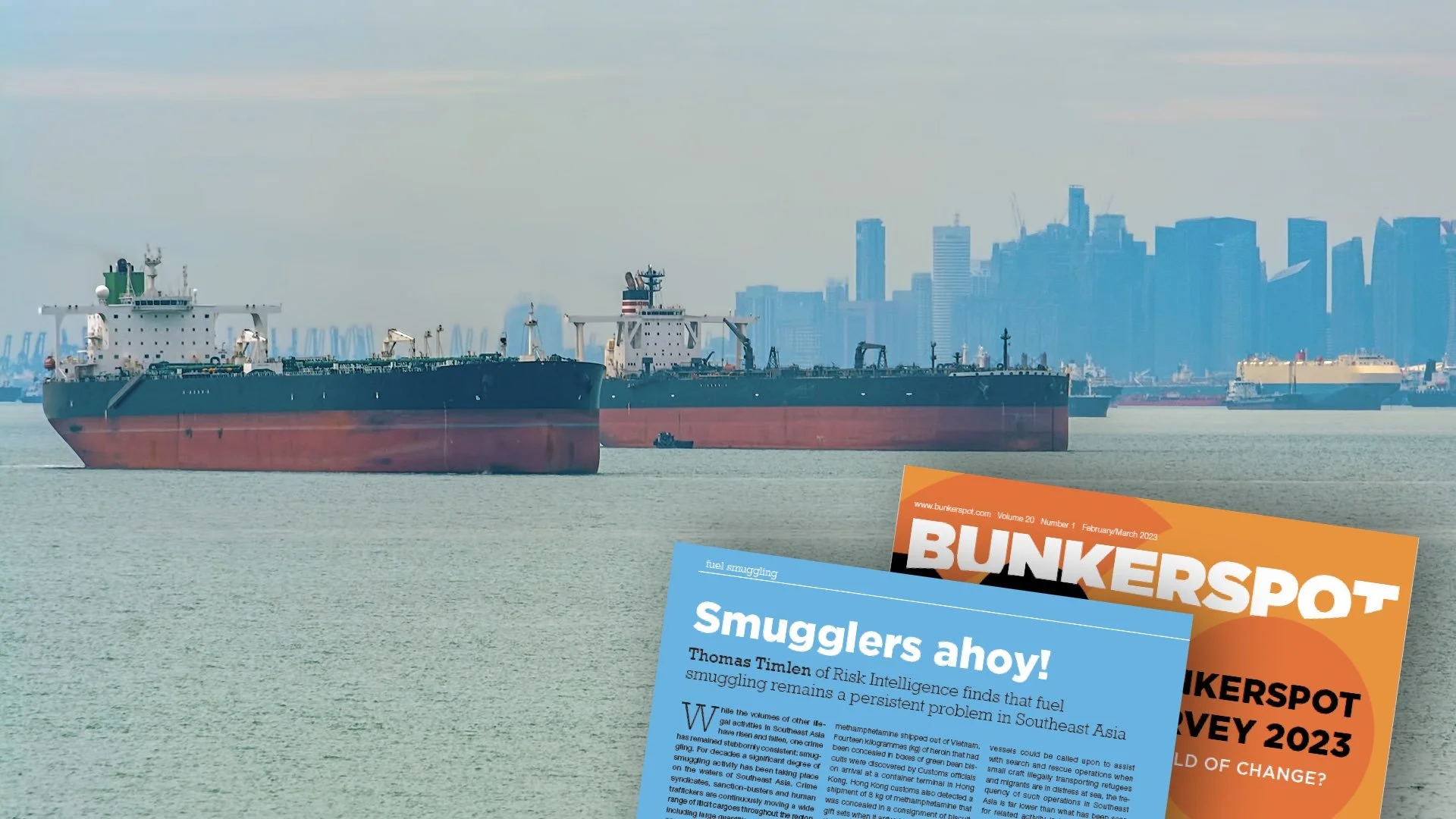South-east Asia: an ongoing fuel smuggling challenge
Risk Intelligence analyst Thomas Timlen wrote an article for Bunkerspot magazine highlighting the significance of smuggling, interconnected to other criminal activities in South-east Asia.
1 March 2023
This article takes a look at the activity of smuggling and how it has remained constant in South-east Asia, despite the fact that the degree of other illegal acts has altered.
Over the years, South-east Asia's waters have seen a significant amount of illegal smuggling activity. Drugs, fuel, and guns, as well as refugees and migrants who have been kidnapped and transported against their will are just some of the illegal cargoes that are constantly being moved throughout the region by criminal organisations and human traffickers.
Smuggling is mainly performed on motorboats and fishing trawlers, but regular cargo vessels are also employed. This is obviously true for drug-hidden containers and sanctioned liquid cargoes on very large crude carriers (VLCCs).
South-east Asian law enforcement authorities prevent shipments of methamphetamine, diesel, cooking oil, heroin, cannabis, ecstasy, tobacco, endangered/protected species, and sanctioned liquid cargo transiting on very large crude carriers (VLCCs). Previous container vessel incidents resulted in the detection of heroin and methamphetamine, with an estimated market value of US$17 million.
Commercial cargo vessels operating legally face few consequences from ongoing smuggling activity because they are operated by organisations and individuals who are fully aware of the illegality of their activities.
The smuggling of fuel is a great example of this. Tugs and fishing trawlers are used in the black market to illegally distribute fuel in South-east Asia's waters. These vessels collaborate with small tankers to buy, store, and sell/distribute fuel in ship-to-ship transfers at sea. People who purchase this fuel are similarly breaking the law, at least in the majority of cases. Fishing trawlers can get fuel at low prices without returning to port, making it a profitable business.
There are always exceptions to assumptions. Officials on a containership near a major terminal were deceived into purchasing fuel from a bunker barge. Local officials, however, seized the bunker barge on suspicion of illegal operations and document fraud after seeing inconsistencies in the documentation.
In order to avoid international sanctions, Iranian and Venezuelan goods bound for China and North Korea are regularly smuggled. During a Kalimantan ship-to-ship transfer in January 2021, Indonesian police arrested two VLCCs. Both ships' command believed that keeping radios silent, removing flags, and turning off Automatic Identification Systems (AIS) would prevent detention.
However, a small oil spill near the ships immediately drew notice to their location, and Indonesian legislation prohibits turning off Automatic Identification Systems (AIS). Indonesia's strict policing of anchoring and operations while anchored may have been the ultimate red flag. Authorities with limited resources are struggling to prevent smuggling and illegal sales of liquid cargos, which are assisted by a wide range of vessels.
Law enforcement has been effective in preventing vessel hijacking, but if alternative sources of revenue are effectively cut off, offenders may be driven to return to their old tactics and attack tankers again. Vessels acting within the boundaries of national, regional, and international law should keep encountering a minimal risk of serious consequences as a result of South-east Asia's ongoing smuggling activity at sea.
Access the whole article by clicking on the button below:
LEARN MORE:
Want 24/7 access to unrivalled intelligence? Get a free trial of the Risk Intelligence System:
Sign up to get a two week unlimited free trial for up to five users, providing access to all incidents, assessment reports and features from vessel or desktop. Get in touch now.

